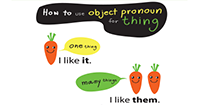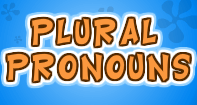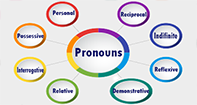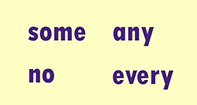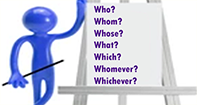Change Avatar
What are Pronouns
What Is a Pronoun?
The prefix “pro” means “for,” so a pronoun is essentially “for” a noun. And that’s exactly what a pronoun is - a word that’s used to represent a noun previously mentioned in a sentence or one that cannot be specified yet.
Pronouns can replace the noun in a sentence and function in exactly the same way as the noun would function. They can either be a subject or an object within a sentence.
What Are Some Examples of Pronouns?
There are several different types of pronouns, so let’s take a quick tour!
Personal Pronouns
Personal pronouns exist in different forms depending on who or what they represent, and how they’re used in a sentence. If a pronoun is the subject of a sentence, you use the nominative (naming) case. If they’re an object, then they take the objective case.
Pronouns that refer to people or things with gender can be found in several different forms, including nominative, objective, possessive, and reflexive.
Nominative or Subject pronouns are used as the subject in a sentence.
Objective is a pronoun used as an object (direct or indirect) in a sentence.
Possessive shows ownership or property of someone.
Reflexive refers back to the subject of the sentence. Used when the object is also the subject.
| Nominative (Subject) | Objective | Possessive | Reflexive | |
|---|---|---|---|---|
| 1st Person Singular | I | me | mine | myself |
| 2nd Person Singular | you | you | yours | yourself |
| 3rd Person Singular | he / she / it | him / her / it | his / hers | himself / herself / itself |
| 1st Person Plural | we | us | ours | ourselves |
| 2nd Person Plural | you (all) | you | yours | yourselves |
| 3rd Person Plural | they | them | theirs | themselves |
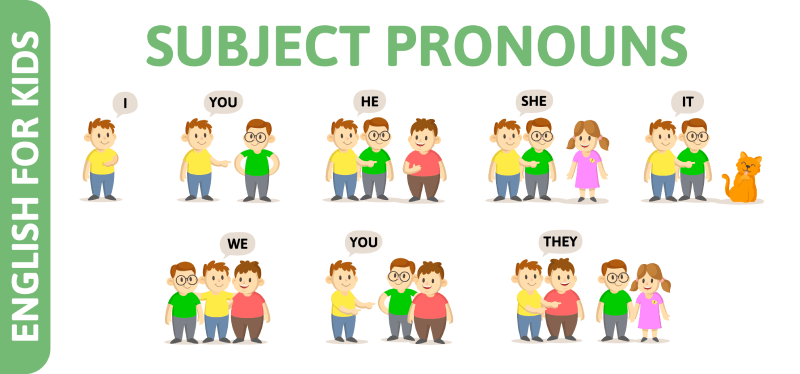
Other Types of Pronouns
Interrogative pronouns are used to ask questions. Examples include who, whom, what, which, whoever, whichever, etc.
Reciprocal pronouns indicate that two or more nouns are doing or being the same to one another. Examples include each other, one another, etc.
Demonstrative pronouns identify or indicate a group of nouns that may be at a certain distance in space or time. Examples include this, that, these, those, etc.
Relative pronouns join two different clauses together where the pronoun in the second clause refers to the noun in the first clause. Examples include who, whom, whose, which, that, etc.
Indefinite pronouns show unspecified or unclear objects, either in singular or plural form. Examples include anybody, anyone, somebody, someone, nobody, noone nowhere, few, many, nothing, etc.
Why Are Pronouns Important?
They give variety to your sentences. Can you imagine how dull it would be to read something that continued to use the same noun over and over again?
Shanni’s favorite thing to do is bake. Shanni loved baking in her mother’s kitchen. Shanni used Shanni’s special recipe book that Shanni’s great-grandmother had given to Shanni so that Shanni could have all of Shanni’s family recipes. Shanni loved seeing Shanni’s grandmother’s handwriting in Shanni’s recipe book.
Instead, let’s use some pronouns…
Shanni’s favorite thing to do is bake. She loved baking in her mother’s kitchen. Shanni used her special recipe book that her great-grandmother had given to her so that she could have all of their family recipes. Shanni loved seeing her grandmother’s handwriting in her recipe book.
A lot better, right?
QUICK TIP!
Just remember that a pronoun must replace a noun within a sentence and functions in the same way that a noun would. Nouns are more specific than pronouns, but pronouns keep sentences from being redundant!




